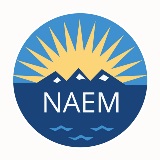Lifelong Learning Drives Success for Today's EHS and Sustainability Professionals

"When I started my professional career [I knew it would be] one of lifelong learning," he said.
He began his journey with a Bachelor of Science degree in Geology, followed by a teaching certification. Next, while starting his career in environmental consulting, he earned a master's degree in environmental management. Then, upon making the switch to an ‘in-house' role, he earned his MBA, a degree he said has strong value for those who aspire to leadership positions in EHS.
"I wanted to be in the top leadership position that I could achieve," he said. "[I knew] that having a business degree was going to help enable that career path."
Indeed, NAEM's recent survey of 345 EHS and sustainability professionals confirms that more than half of respondents have a master's degree. Among that group, the most common degrees were: engineering (27 percent), environmental science (27 percent) and an MBA (25 percent). Like Mr. Cline, 28 percent of those with an MBA also hold a master's degree in a technical field.
Pursuing advanced training in business and management skills has similarly been a winning formula for Kenny Ogilvie, President of EHS Support, a consultancy he founded in 2005.
"In our industry there are three areas—management, financial [literacy] and working well with others—that, being a technical person, don't always come naturally," Mr. Olgilvie said. "Having that kind of training helped propel me towards the career I ended up doing."
For Mr. Ogilvie, whose bachelor's degree was in aquatic environments, it was important to seek opportunities to develop his business savvy. He did so by first completing a management program at the University of Michigan's Ross School of Business, and then taking advantage of NAEM's ‘mini MBA' program at Carnegie Mellon University (CMU) in 2003.He credits this preparation with teaching him how to effectively communicate risk to those outside of the EHS function.
"It was the CMU finance professors who were actually showing us how to understand what value is in an organization and how to quantify it, and what the C-Suite would want to understand to make business decisions," he said.
Mr. Cline agrees that being able to speak the language of business is among most enduring benefits of his MBA training.
"When a business leader is talking to me, I at least have enough knowledge from my education to understand what they're talking about," he said. "If I can do that, I think that's going to help [me] communicate more effectively with that business leader and have a better opportunity to have a discussion with them on a more even keel."
Knowing how important communication skills are to being effective in the workplace is among the reasons why Frank Veale, Chair of the Environmental and Emergency Management program at the Massachusetts Maritime Academy, says the university emphasizes this training for those at the undergraduate level, too.
"We realized long ago, especially in the environmental, health and safety field, that good communication skills are extremely important," he said. "We really push that the students are given opportunities to present."
Mr. Veale, who himself had a long and successful EHS career in industry, said those at the entry-level of the career often lack the ability to smoothly transition from an academic setting into the workplace. The Mass Maritime program attempts to address that challenge by emphasizing discipline, leadership and competency.
"Our objective is really to put students into the field upon graduation." He said. "[Our students] are well-prepared to take the bull by the horns."
The formula for a well-rounded EHS and sustainability professional is something that Mr. Cline says ultimately ladders up to building the rapport upon which communication relies.
"By having that base background, I can put that person in a position where they can trust me," he said.
For more information about NAEM's benchmark on ‘Key Competencies for the EHS and Sustainability Profession" please visit http://www.naem.org/?survey_2015_competen.
Topics:
Staffing & Structure
Related
About the Author

NAEM Staff
The National Association for Environmental, Health and Safety, and Sustainability (EHS&S) Management (NAEM) empowers corporate leaders to advance environmental stewardship, create safe and healthy workplaces and promote global sustainability. As the
leading business community for EHS&S decision-makers, we provide engaging forums, a curated network, peer benchmarking, research insights and tools for solving today’s corporate EHS&S management challenges. Visit us online at naem.org.

